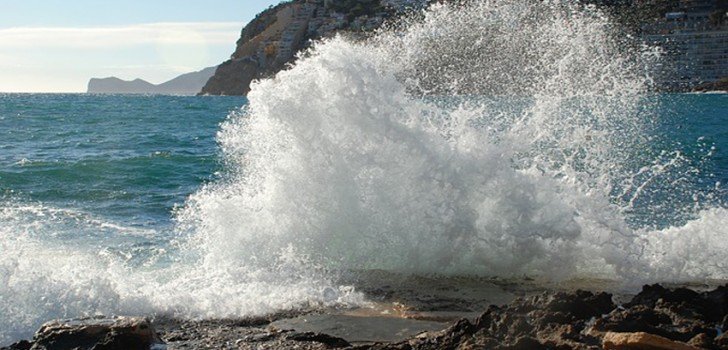Over 150 million people currently live in cities with a shortage of fresh water. It is predicted that by 2050, this number will increase to nearly 1 billion. Moreover, climate change will do its part in increasing the number even further.
In light of these dire predictions, two recent college graduates have worked to help come up with a solution. They invented a system that has the potential to make fresh water more available to those who need it, simply by harnessing the power and water of the world’s oceans.
The inventors of SAROS Desalination are Chris Matthews, 24 and Justin Sonnett, 25. SAROS is a startup that was born from the young men’s 2014 senior project while studying at the University of North Carolina, Charlotte. The Swell Actuated Reverse Osmosis System (SAROS) is a complex yet simple system of high-pressure pumps that sit atop a buoy. The system powers itself solely with the energy harnessed from the ocean waves’ vertical motion.
The system takes in seawater, and high-pressure pumps it through a “reverse-osmosis membrane.” It then emits clean, drinkable water which is stored in a tank until it is ready to be brought back to shore.
Sonnet excitedly talks about SAROS. “What’s unique about this is that we don’t need any kind of electricity or fossil fuels that are normally associated with desalination, so it’s very environmentally friendly. It’s also going to be a lot less expensive than traditional desalination plants, which take a whole lot of energy to build and run.”
And while traditional desalination plants do great work in providing necessary drinking water to those who need it, they are expensive to build, require a lot energy to run and can contaminate oceans with a heavily concentrated salt byproduct.
In contrast, SAROS is portable and relatively inexpensive, with an expected retail price of about $23,000. It has the ability to produce 2,000 gallons of fresh, clean water daily.
The self-contained, small unit allows for ideal use in developing areas, on islands, at eco-friendly resorts, in military outposts and for disaster relief. SAROS hopes to target these applications when the company officially launches the system within the next couple of years.
SAROS says that as of now, it is the only company producing clean water directly without the use of electricity.
The director of the Center for Clean Water and Clean Energy at MIT, John H. Lienhard V, says that such technology has a lot of advantages to other systems, but there are limitations preventing SAROS from becoming a universal solution to the problem.
Lienhard points out that, “Some parts of the world’s oceans are better suited than others.” He notes that the system is only operable where waves are strong enough to drive it. He further adds that, “A second consideration is the cost of this source of water relative to locally available alternatives, such as solar-energy-driven reverse osmosis or water hauled by truck.”
Despite the limitations, Matthews and Sonnett are confident that their system will work in many areas and help many people.
SAROS was chosen as one of 30 projects out of 3,600 to compete at the Hello Tomorrow Conference in Paris this past summer. The project is now beginning to gain some recognition.
Sonnett acknowledges that SAROS “is never going to be something that’s going to make tons of money, but we just want to see it make tons of water.”
Stay Connected